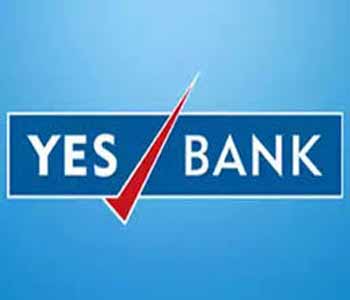Shares of YES Bank were locked in 10 per cent lower circuit at Rs 12.30 on the BSE on Monday after the listing of fresh shares allotted in the follow-on public offer (FPO).
Till 09:17 am, a combined 198.51 million equity shares had changed hands and there were pending sell orders for 360 million shares on the NSE and BSE, exchange data shows.
“12,504 million equity shares of YES Bank are listed and admitted for trading on the exchange with effect from July 27, 2020. These shares rank pari-passu with the existing equity shares of the company,” said the BSE in its release.
The private sector lender raised Rs 15,000 crore through FPO by issuing shares at the price of Rs 12 per share.
The stock of the new generation private sector bank has consistently been falling since the pricing announcement of the FPO. The scrip was down for 11 out of the past 12 trading days. It has fallen 54 per cent from the level of Rs 26.65 on July 9, 2020.
YES Bank has stated in its prospectus that the funds raised via FPO will be used for growth and expansion including enhancing its solvency, capital adequacy ratio and evolving regulatory requirements.
Analysts at Angel Broking believe that retail deposit is the key for any bank for lower cost of funds. However, YES Bank has witnessed sizable deposit withdrawal over the last 2 quarters. Rebuilding CASA and deposits is a challenging task and would take longer time, it said.
Although, rating agency Moody’s feels that capital raising by the bank is credit positive. The fresh equity capital injection of about Rs 15,000 crore ($2 billion) is credit-positive for YES Bank as it strengthens the lender’s capitalisation and loss-absorbing buffers. It will also reduce default risk for its creditors, it said.
The capital raise brings Yes Bank’s capitalisation closer to private sector peers like IndusInd Bank. It will strengthen the bank’s resilience to potential asset quality stress because of coronavirus-related disruptions to India’s economy.
In June 2020, the RBI prohibited the bank from paying coupons on its Tier-II bonds as it failed to meet regulatory capital requirements. The bank reported a capital adequacy ratio (CAR) of 8.5 per cent as of 31 March 2020, below the minimum requirement of nine per cent.
With this capital raise, the bank will be able to service the coupon of its Tier II debt since its CAR of 19 per cent will be well above the regulatory capital requirements, thereby reducing risks to the holders of its Tier-II debt, rating agency added.


Comments are closed.